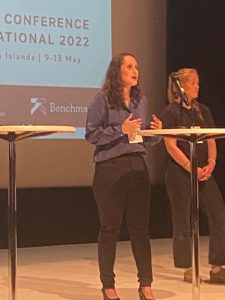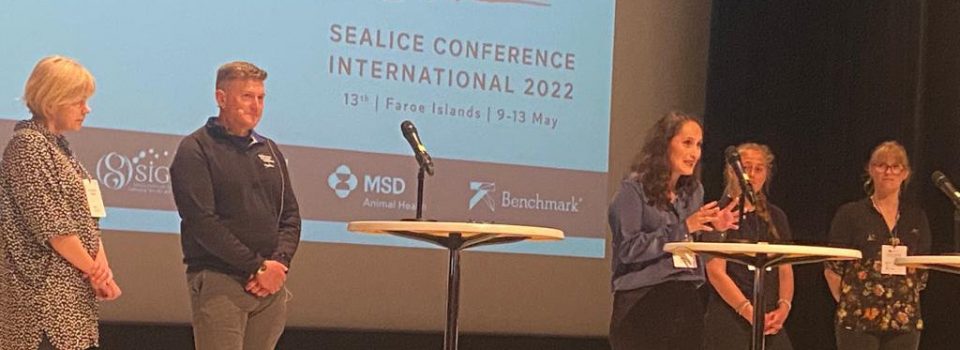Dr. Margarita González from IFOP exhibits at Sealice Conference
November 6th, 2022
This is the main sea lice research congress in the world
Yesterday, May 10th, Dr. Margarita González presented two papers at the XIII version of sealice Conference 2022, which takes place in Törshavn, Faroe Islands, she explained “these are papers derived from IFOP’s permanent research program named Determination and Surveillance of Caligus rogercresseyi Resistance to Antiparasitics applied in National Salmon Farming, which is carried out at IFOP hydrobiological health Department”.
She spoke about Caligus profiles susceptibility against temperature and light different conditions.
Dr. Margarita González commented “The oral presentation was intended to explain research findings aimed to evaluate susceptibility profile of a parasitic variant highly susceptible to azamethiphos, cultivated in IFOP, which was exposed to different post-exposure incubation temperatures. This research derived from an internal technical consultation that we wanted to resolve, its response indicates that we can expand our geographical range in terms bioassays application in remote places without greater scientific equipment.
The main result is that two major responses were obtained, one technical and the other biological. The technique refers to the fact that we can carry out susceptibility bioassays in temperature ranges from 12 to 15 degrees Celsius and that we do not require lighting, expanding our capacity to carry out bioassays in places that do not have specialized equipment. This helps our permanent program execution. The biological response is that we were able to determinate that same parasitic variant can vary profile susceptibility depending on temperature to which it is exposed, a response also observed in data derived from bioassays carried out on parasitic variants from field”.
Regarding poster work, results derived from susceptibility surveillance to azamethiphos and deltamethrin in a sentinel center and which is part of the previously indicated program were presented. Results indicate that parasites present in the sentinel center have lost susceptibility to both antiparasitics over time, which helps us to argue the relevance of considering sentinel centers in a program of the magnitude that we have. And that in turn allows to represent a particular geographical area”.
“For me it marks a milestone and at the same time a recognition, since the fact that they have accepted two works, one as a poster and the other as a presentation, implies that our research is on the right track and that the information derived from these experiments is useful for the scientific community” concluded González.
Press related links
